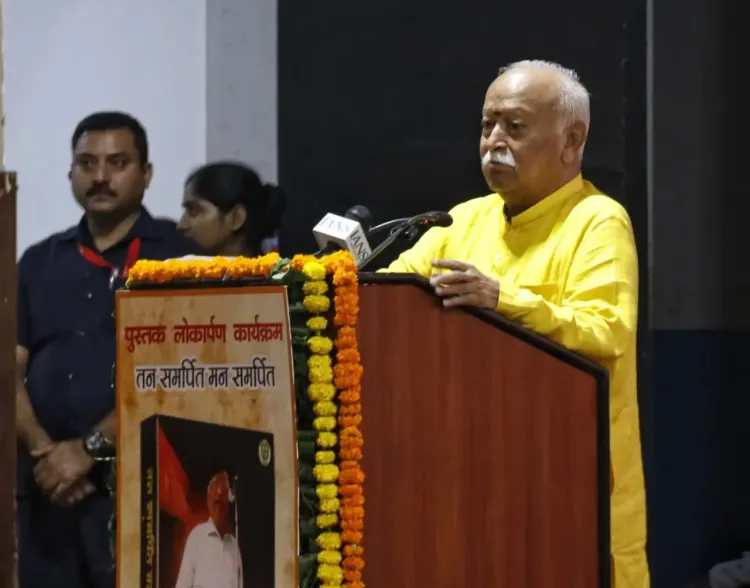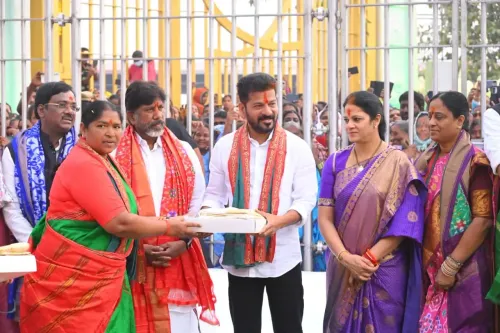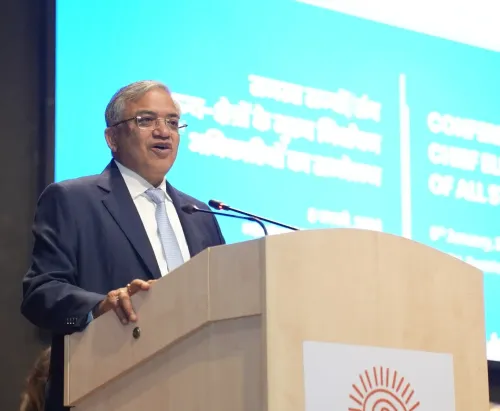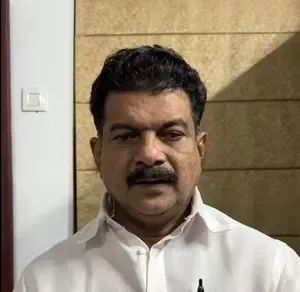Can RSS Chief Inspire Change for Gender Equality and Women's Leadership?

Synopsis
Key Takeaways
- Women are key players in the RSS, with growing representation in leadership roles.
- Empowerment of women is essential for national development.
- Real change requires action and mindset shifts rather than mere rhetoric.
- Inclusive leadership fosters a more participatory society.
- Bhagwat's vision indicates a transformative direction for the RSS.
New Delhi, Aug 18 (NationPress) In an insightful commentary on social evolution and gender dynamics, Dr. Mohan Bhagwat, the Chief of the Rashtriya Swayamsevak Sangh (RSS), has advocated for a more profound inclusion of women in leadership and decision-making roles, both within the Sangh and in the wider civil society.
During the unveiling of a new book titled, “Tan Samarpit, Man Samarpit,” Bhagwat highlighted the notion that women are not just equal contributors but often the driving force behind significant transformations.
“While in Jaipur, I was questioned about the number of women in the Sangh. I responded by stating that at the very least, the number of women matches that of our swayamsevaks,” Bhagwat noted, emphasizing the increasing involvement of women in pivotal leadership positions within the RSS.
“In all initiatives aimed at societal betterment, men and women collaborate harmoniously. Women hold leadership roles even within the core groups,” he remarked.
Bhagwat’s statements echo his recent comments made in Solapur, Maharashtra, where he encouraged society to free women from outdated customs and traditions.
“Empowering women is crucial for national advancement,” he asserted. “God has endowed women with all the attributes He has given to men—and more. They are capable of achieving everything men can, often exceeding those capabilities.”
He underscored that genuine change is not achieved through mere slogans or speeches, but through practical examples.
“Knowledge alone does not incite change. Transformation must stem from action, which necessitates a shift in mindset,” he stated.
“Volunteers need to embody these principles in their lives so that others can witness and emulate them,” he added.
Bhagwat also reflected on the legacy of early pracharaks who labored under challenging conditions, motivated not by accolades but by a commitment to service.
“Ideals are akin to stars—we might not reach them, yet they illuminate our journey,” he remarked. “To traverse that journey, individuals require relatable mentors who exemplify these values.”
His comments indicate a shift in the traditional narratives of the RSS, focusing on inclusive leadership, family participation, and the empowering influence of women-led initiatives.
As the Sangh gears up for its centenary festivities in October 2025, Bhagwat’s vision seems to be guiding the organization towards a more inclusive and socially aware future.










